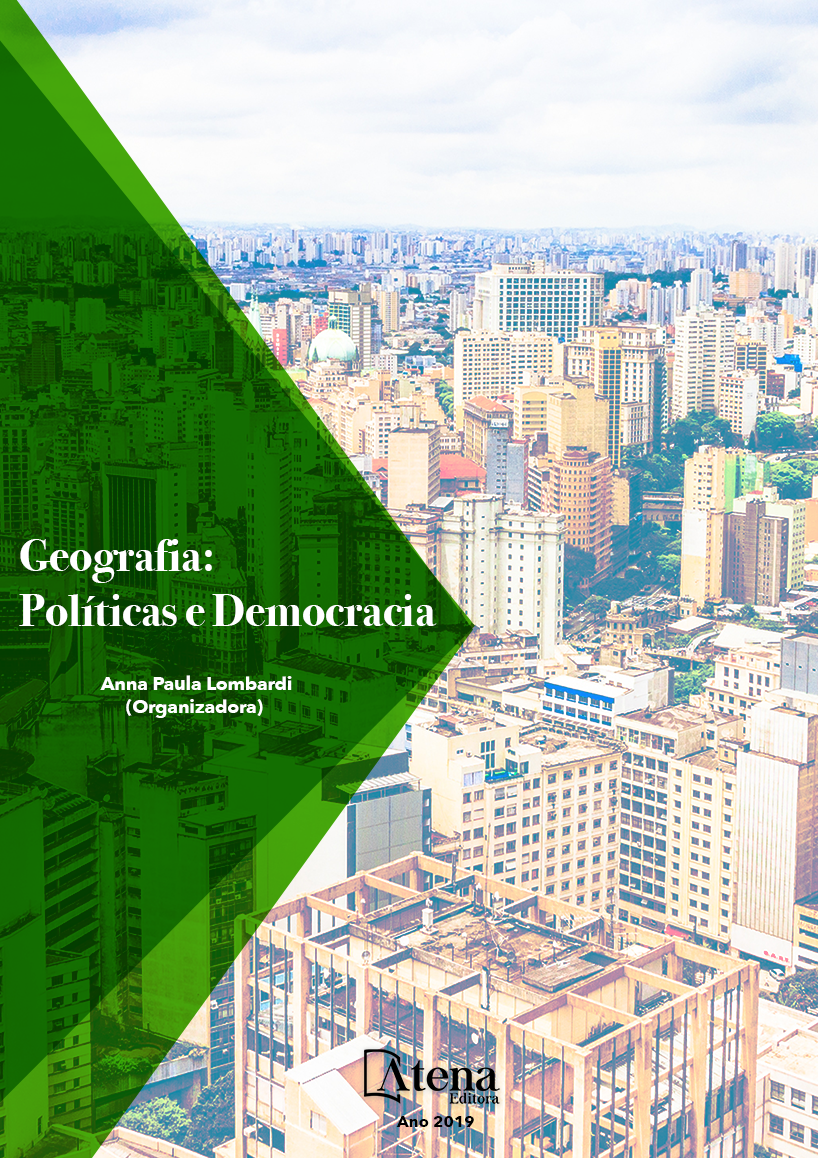
EVIDÊNCIAS DE UMA “NOVA COGNIÇÃO DO SISTEMA MUNDO” NO PENSAMENTO GEOGRÁFICO CONTEMPORÂNEO NAS PESQUISAS GEOGRÁFICAS SOBRE PATRIMÔNIO CULTURAL
Este estudo teve como objetivo
desvelar as evidências de um nova cognição do
sistema mundo, as tendências e desafios para o
pensamento geográfico contemporâneo, através
da análise das produções científicas (Teses e
Dissertações) dos cursos de pós-graduação
em geografia, sobre Patrimônio Cultural, numa
abordagem geográfica. A escolha pelo tema
Patrimônio Cultural se justifica pela natureza
do fenômeno, pois um bem material tombado
pelo Instituto do Patrimônio Histórico e Artístico
Nacional (IPHAN) reflete e articula processos
culturais, sociais, ambientais, econômicos e
políticos que se consubstanciam num recorte
espacial e na espacialidade do fenômeno,
potencializando a interlocução da geografia
com outras áreas de conhecimentos. Os
procedimentos metodológicos contemplaram:
levantamento das teses e dissertações
disponíveis no banco de teses e dissertações
da CAPES, oriundos dos programas de pósgraduação em geografia e que apontam
nas palavras-chave Patrimônio Cultural;
leitura seletiva dos resumos, introduções e
conclusões; em seguida, os dados foram
sistematizados e apresentados em tabelas e
gráficos, que potencializarão a reflexão teórica
e a elucidação do fenômeno. Nas produções
científicas (teses e dissertações) investigadas,
em relação a natureza do objeto de estudo,
foi possível constatar alterações significativas
nas concepções e conceitos que balizavam, os
fundamentos epistemológicos e metodológicos
da Ciência Moderna, tais como: causalidade,
objetividade, reducionismos; e, aparecimento
de outros: multiescalar, multidimensionalidade
e complexidade. Apontando indícios de
uma potencial superação das fragilidades
epistemológicas na ciência geográfica e
desvelando tendências e desafios para o
pensamento contemporâneo.
EVIDÊNCIAS DE UMA “NOVA COGNIÇÃO DO SISTEMA MUNDO” NO PENSAMENTO GEOGRÁFICO CONTEMPORÂNEO NAS PESQUISAS GEOGRÁFICAS SOBRE PATRIMÔNIO CULTURAL
-
DOI: 10.22533/at.ed.45919190213
-
Palavras-chave: Pesquisa Geográfica; Patrimônio Cultural; pensamento geográfico; Nova cognição do sistema mundo.
-
Keywords: Geographic Research; Cultural heritage; geographic thought; New cognition of the world system.
-
Abstract:
This study aimed to unveil the
evidence of a new world system cognition,
the trends and challenges for contemporary
geographic thought, through the analysis of the
scientific productions (Theses and Dissertations)
of the postgraduate courses in geography,
Cultural Patrimony, geographical approach.
The choice of the theme Cultural Heritage is
justified by the nature of the phenomenon,
since a material asset listed by the National
Historical and Artistic Patrimony Institute (IPHAN) reflects and articulates cultural,
social, environmental, economic and political processes that consubstantiate a spatial
spatiality of the phenomenon, enhancing the interlocution of geography with other
areas of knowledge. The methodological procedures included: survey of the theses
and dissertations available at the thesis and dissertations bank of CAPES, from the
graduate programs in geography and which point out the keywords Cultural Heritage;
selective reading of abstracts, introductions and conclusions; then the data were
systematized and presented in tables and graphs, which will potentiate the theoretical
reflection and the elucidation of the phenomenon. In the scientific productions (theses
and dissertations) investigated, in relation to the nature of the object of study, it was
possible to verify significant alterations in the conceptions and concepts that marked
out, the epistemological and methodological foundations of Modern Science, such
as: causality, objectivity, reductionism; and, appearance of others: multi-scalar,
multidimensionality and complexity. Pointing out indications of a potential overcoming
of epistemological fragilities in geographic science and revealing tendencies and
challenges for contemporary thinking.
-
Número de páginas: 15
- Jacy Bandeira Almeida Nunes


